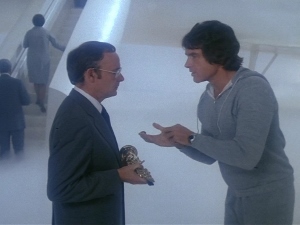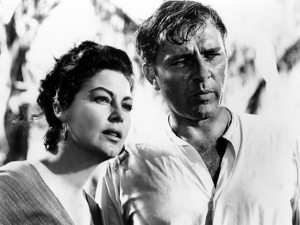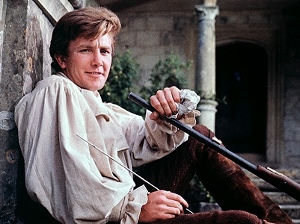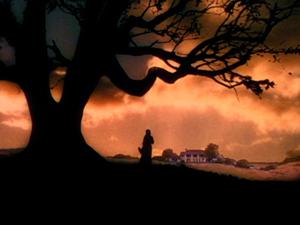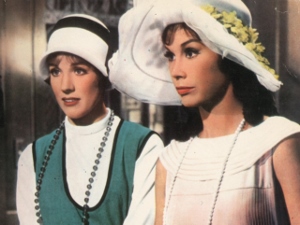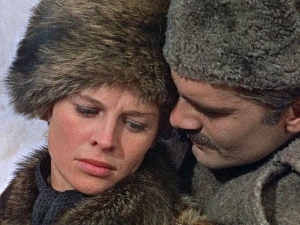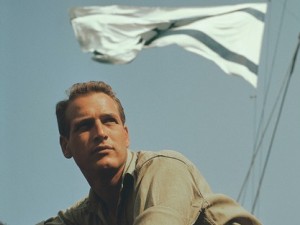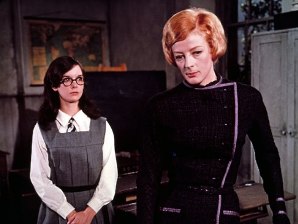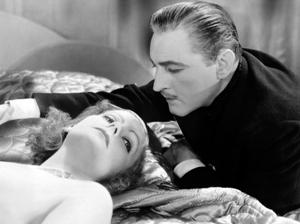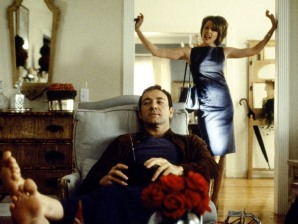The Night of the Iguana (1964)
Tom Jones (1963)
Gone with the Wind (1939)
[7]
Hollywood’s most celebrated melodrama is still entertaining today. Vivien Leigh does a remarkable job playing one of the most volatile heroines in film history. Scarlet O’Hara begins Margaret Mitchell’s story damned spoiled, and I’m not sure she ever really learns her lesson, but Leigh renders a subtle transformation while always remaining true to character. My other favorites are Olivia de Havilland (sweet in everything she’s in), Hattie McDaniel (who deserved her Oscar), and Butterfly McQueen (for bringing a little comedy to the proceedings). I don’t get Leslie Howard as Ashley. For being the crux of the movie’s romantic triangle, I’d like to have known what was so darned special about him. Max Steiner’s music, especially the Tara theme, is among the most memorable ever composed for film.
Thoroughly Modern Millie (1967)
[6]
Julie Andrews stars in this 1920s madcap musical as the title character, a woman looking to land a job and a husband in the big city, but ends up embroiled with a nefarious white slave trader! Mary Tyler Moore is underutilized as the woman Millie has to rescue from slavery, but Carol Channing chews the scenery in a bizarre Oscar-nominated performance only she could have pulled off. The musical numbers are a little unrelated to the storyline and they do go on a bit long, but there aren’t many numbers in the movie, and I believe they’re all over before the intermission. After the intermission, things move very quickly. Director George Roy Hill (The Sting, Butch Cassidy and the Sundance Kid) stretches out of his comfort zone so well, the last half-hour will have you wondering if Blake Edwards took over the film. It’s an intentionally silly, over-the-top sort of movie that pays off better than most of its sort.
Doctor Zhivago (1965)
[4]
I knew I would eventually have to watch this 3-hour 20-minute behemoth and thank goodness it’s over. Doctor Zhivago is a sprawling epic about the Russian Revolution as seen through the eyes of a doctor (Omar Sharif) who wants to have his cake (his wife is played by Geraldine Chaplin) and eat it, too (his mistress is played by Julie Christie). The first half is dense with plotting and myriad characters — I was getting pretty sleepy. But once Zhivago becomes an exile, I became more alert and the movie picked up speed. Still, when it was all over, I was underwhelmed. He loved two women, he inspired a nation, and I just didn’t care.
Exodus (1960)
The Prime of Miss Jean Brodie (1969)
[8]
Maggie Smith took home the Best Actress Oscar for her portrayal of Jean Brodie, a charismatic school teacher who dedicates herself to a class of impressionable young women. The film may sound like an all-girl precursor to Dead Poets Society, but it’s a far more nuanced and provocative take on the ‘inspirational teacher’ story. Brodie may begin as the hero of the story, but her tenacious influence and overly-romanticized world view end up having a devastating effect on some of her students. In her (subconscious?) attempt to live vicariously through her “girls,” she ends up creating a monster in her own image.
Grand Hotel (1932)
American Beauty (1999)
[5]
SPOILER REVIEW
I really liked American Beauty when it was first released. Maybe I was wooed by its quirky introspection and aesthetic achievments. Or maybe it was screenwriter Alan Ball’s fresh new way of blending the real with the surreal. Or even the meditative lilt of Thomas Newman’s trend-setting score. But whatever the reason(s), watching the film ten years later, I realize — American Beauty ain’t all that. It’s kinda whack.

